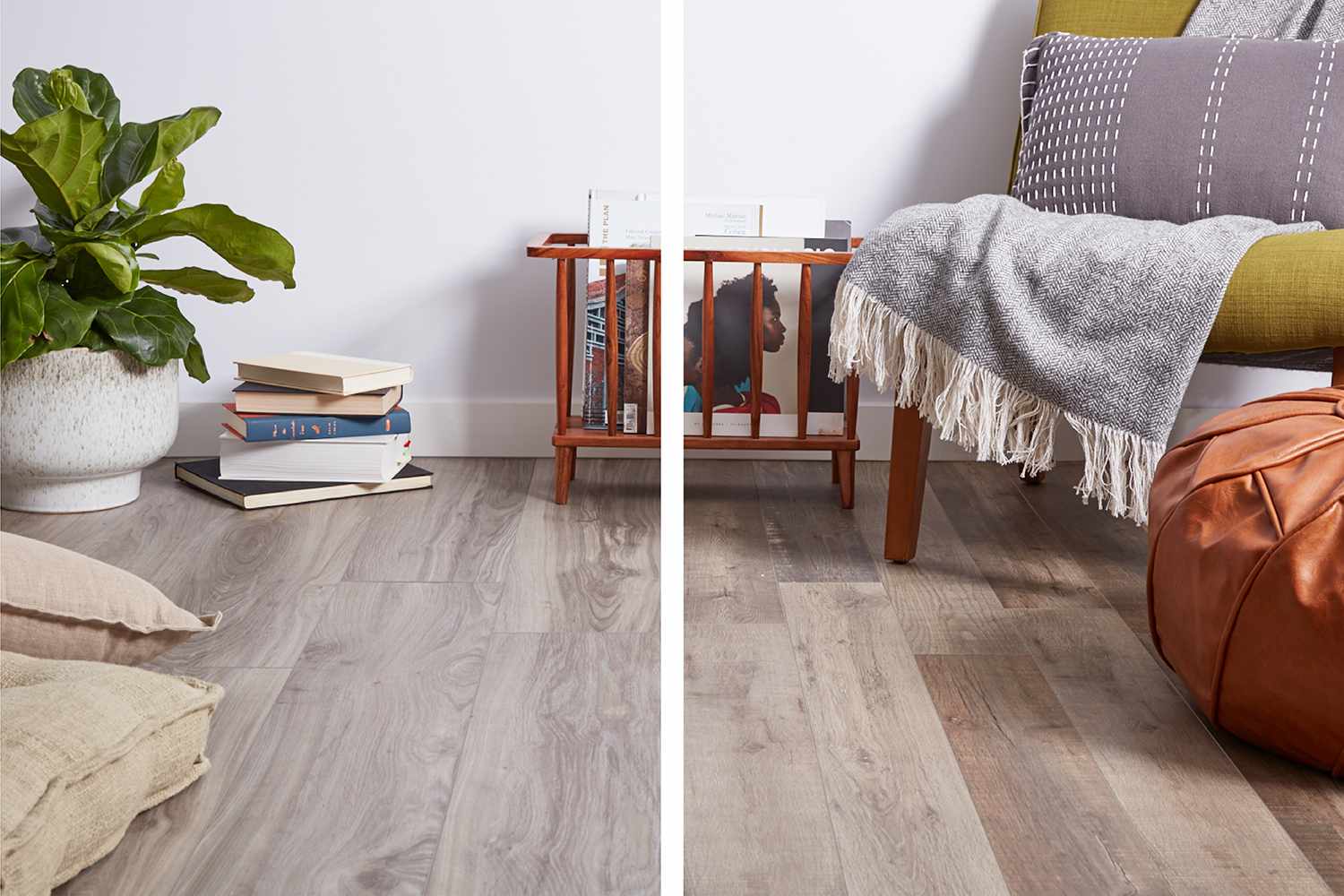Laminate flooring and vinyl flooring are two popular flooring options that are often compared. Both flooring types are great options for homeowners who want a durable and affordable flooring solution. In this article, we will explore the difference between laminate flooring and vinyl flooring, and help you determine which is the right choice for your home.
Laminate Flooring
Laminate flooring is a multi-layer synthetic flooring product that is designed to mimic the look of natural wood. The top layer of laminate flooring is a high-resolution image of wood, which is covered with a clear protective layer. The core of laminate flooring is made of high-density fiberboard, which is reinforced with resin for added durability.
Benefits of Laminate Flooring
Laminate flooring is a great choice for homeowners who want the look of hardwood flooring without the high cost. Laminate flooring is also easy to install, making it a popular choice for DIY enthusiasts. Another benefit of laminate flooring is its durability. Laminate flooring is resistant to scratches, stains, and fading, making it a great choice for high-traffic areas of the home.
Drawbacks of Laminate Flooring
One of the drawbacks of laminate flooring is that it can be noisy underfoot. Laminate flooring is also prone to moisture damage, so it is not recommended for use in areas where there is a lot of moisture, such as bathrooms for basements.
Vinyl flooring is a synthetic flooring product that is made of a combination of PVC and other additives. Vinyl flooring comes in a variety of colors and patterns, including wood and stone looks. There are two types of vinyl flooring: sheet vinyl and luxury vinyl plank (LVP).
One of the benefits of vinyl flooring is its affordability. Vinyl flooring is also easy to install, making it a popular choice for DIY enthusiasts. Another benefit of vinyl flooring is its durability. Vinyl flooring is resistant to scratches, stains, and fading, making it a great choice for high-traffic areas of the home. Vinyl flooring is also moisture-resistant, making it a great choice for bathrooms and basements.
Drawbacks of Vinyl Flooring
One of the drawbacks of vinyl flooring is that it can be prone to indentations from heavy furniture. Vinyl flooring is also not as eco-friendly as other flooring options, as it is made of PVC, which is a non-biodegradable material.
Which is Right for You?
When deciding between laminate flooring and vinyl flooring, there are several factors to consider. If you are looking for a flooring option that is affordable and easy to install, both laminate and vinyl flooring are great choices. If you want a flooring option that mimics the look of hardwood, laminate flooring is the better choice. If you are looking for a flooring option that is moisture-resistant and durable, vinyl flooring is the better choice.
Ultimately, the decision between laminate and vinyl flooring comes down to your personal preferences and needs. Consider the factors mentioned above when making your decision, and choose the flooring option that best suits your home and lifestyle.
Conclusion
Both laminate flooring and vinyl flooring are great options for homeowners who want a durable and affordable flooring solution. While there are some differences between the two, both offer many benefits and drawbacks. When deciding between the two, consider your personal preferences and needs to determine which is the right choice for you.



